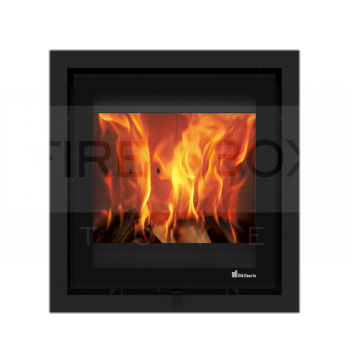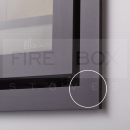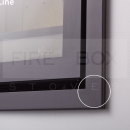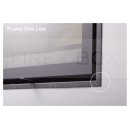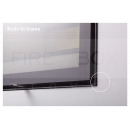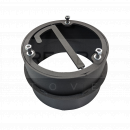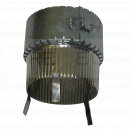Technical Details
| Product Title | Dik Geurts Prostyle 550 EA Inset Woodburning Cassette |
|---|---|
| Product Keyword | Dik Geurts Prostyle 550, Inset Woodburning Cassette, Prostyle 550 EA, Fireplace Insert, Woodburner Insert |
| Energy Efficiency | A+ |
| SIA Ecodesign Ready | Yes |
| Output (Nominal) | 5.1kW |
| Output (Maximum) | 7kW |
| Smoke Control (DEFRA) | Yes |
| Boiler Stove | No |
| Colour | Black |
| Flue Outlet Size | 150mm - 6in |
| Fuel | Wood |
| Height | 617mm |
| Width | 587mm |
| Depth | 344mm |
| Nominal Output (Range) | 5kW - 7kW |
| Width (Range) | 500mm - 600mm |
| Height (Range) | 600mm - 700mm |
Product Description
Dik Geurts Prostyle 550 EA Inset Woodburning Cassette
Experience the warmth and ambience of the Dik Geurts Prostyle 550 EA, an elegant inset woodburning cassette designed with a contemporary home in mind. Crafted for high performance and seamless integration, this model will be the focal point of any living space.
- High-quality steel construction for durability and longevity
- Energy-efficient burning with an A energy label
- Clean burning technology for a better environment
- Easy air regulation for controlled combustion
- Optimal insulation using Ceraglass for a cleaner glass window and enhanced flame view
- Defra-approved for use in smoke control areas
- User-friendly ash removal system for ease of maintenance
- Designed and manufactured in the Netherlands
- Air wash system to maintain a clear view of the flames
- Seamless fit with customisable frames for various installations
- Heat output: 4-6 kW suitable for small to medium-sized rooms
- Efficiency of over 80% for more heat from less fuel
- Can accommodate logs up to 35 cm in length
- Dimensions: 550 mm width, making it compact and suitable for a variety of spaces
File Downloads
Reviews
Inset Stoves > Wood Burning Eco Design Inset Stoves
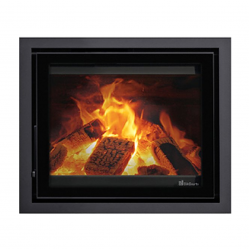
Wood Burning Inset Stoves
With wood burning stoves becoming increasingly popular, our range of wood burning inset stoves has certainly followed suit. Inset wood burning stoves are a great option for homes with no chimney breast or where floor space is limited, providing just a much heat and flame visuals as their freestanding equivalents.
Our fantastic range of wood burning inset stoves will leave you spoilt for choice, with models from all the big names and manufacturers. We have a lovely selection of small 3kW wood burning inset stoves, as well as the larger and more powerful 10kW plus wood burning inset stoves, perfect for heating very large rooms. We also supply traditional and contemporary wood burning inset stoves in a variety of different outputs, allowing you to find the perfect wood burning inset stove to match your budget, style and heat requirements.
